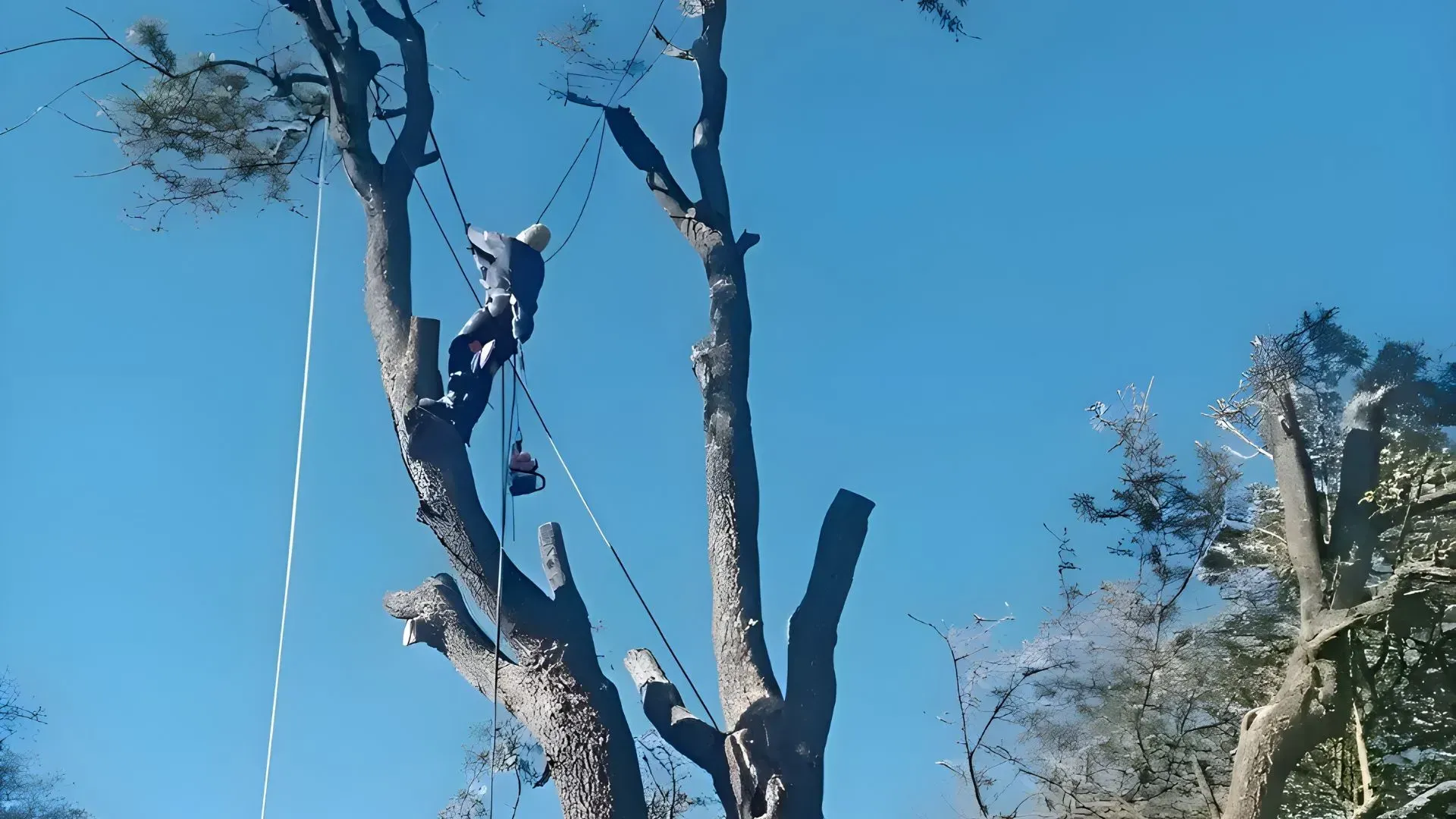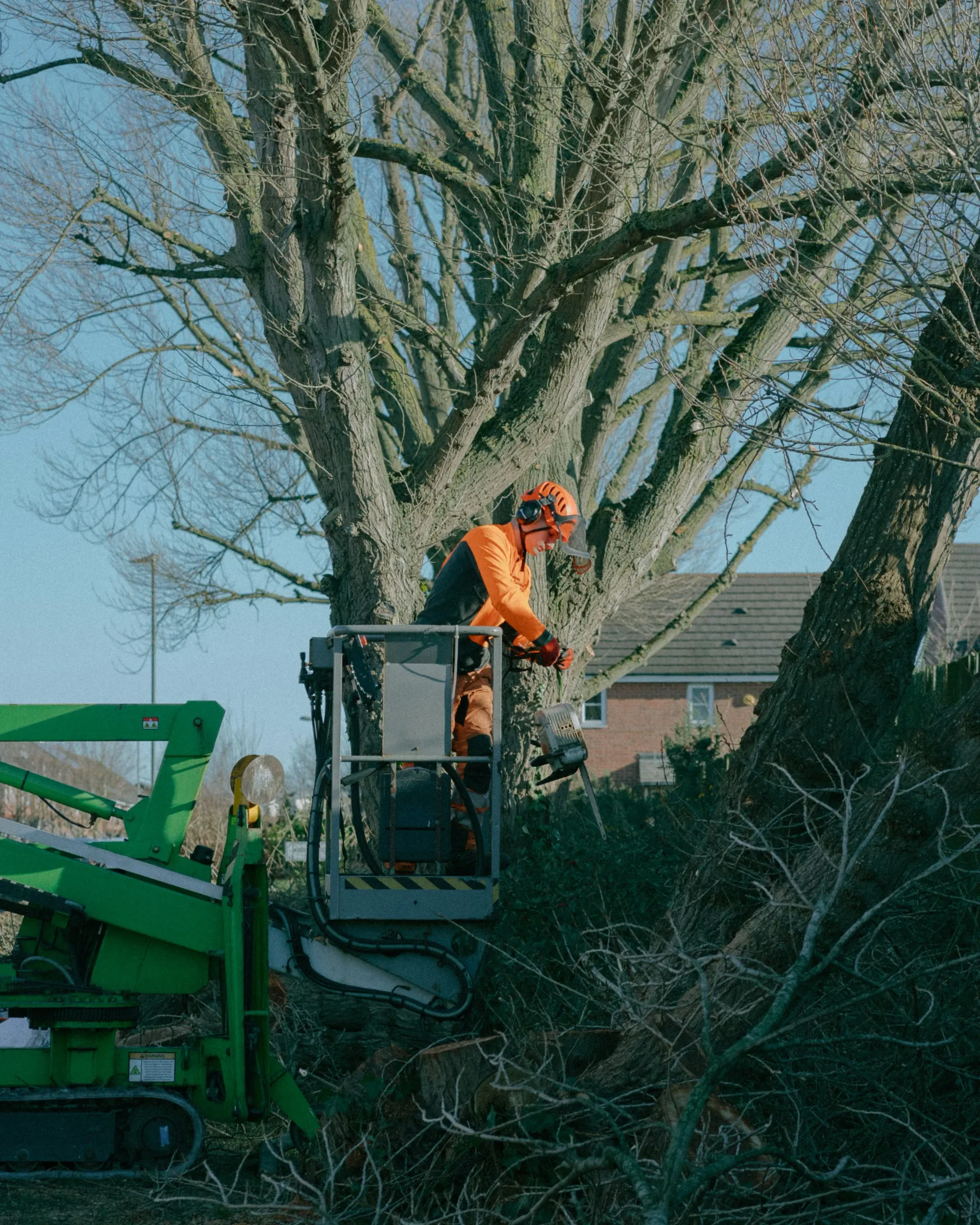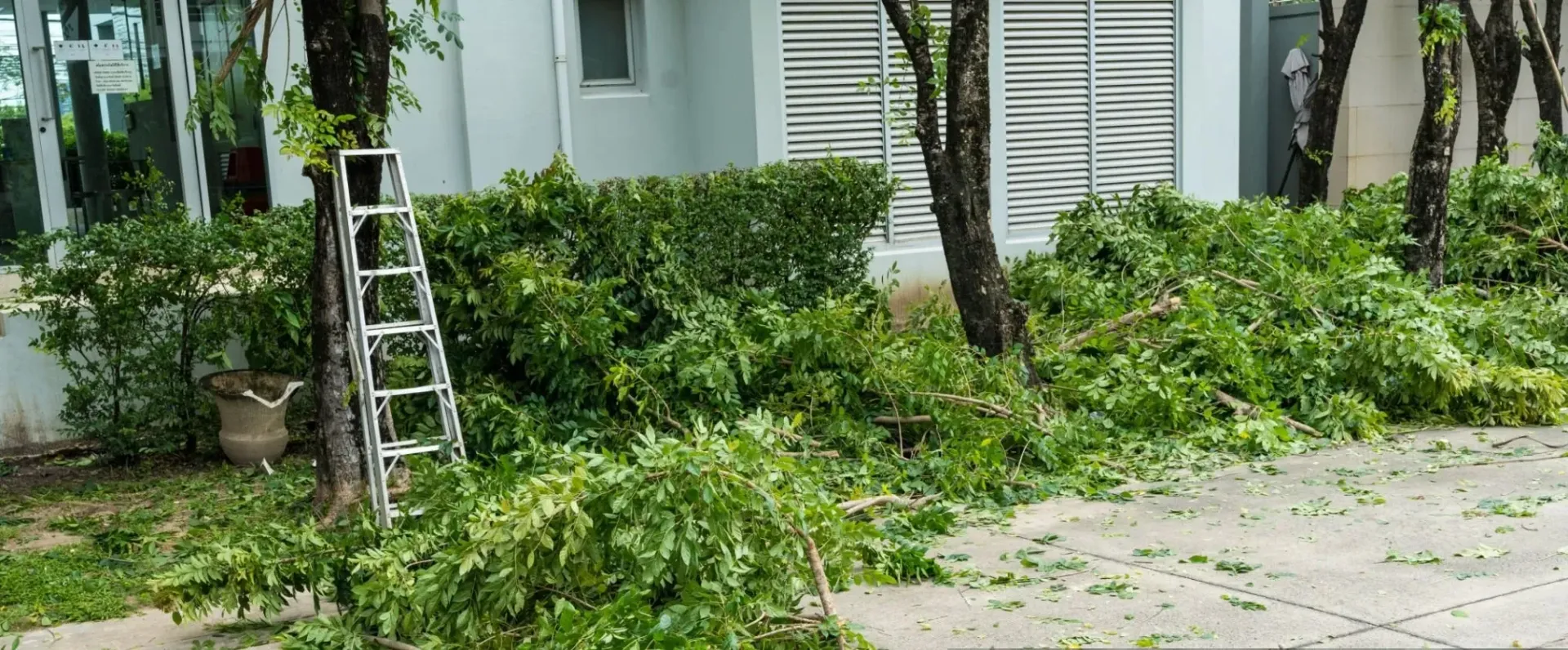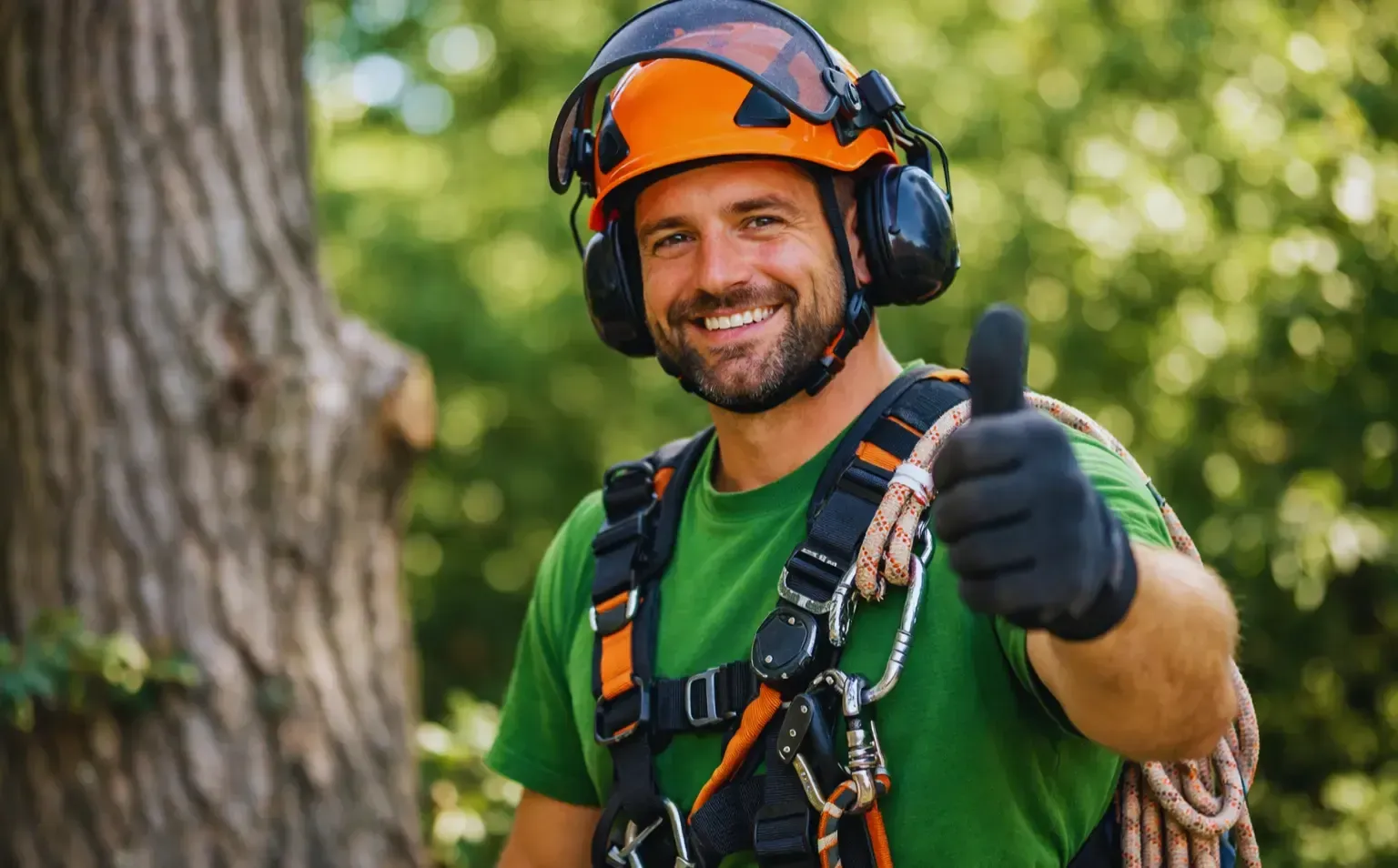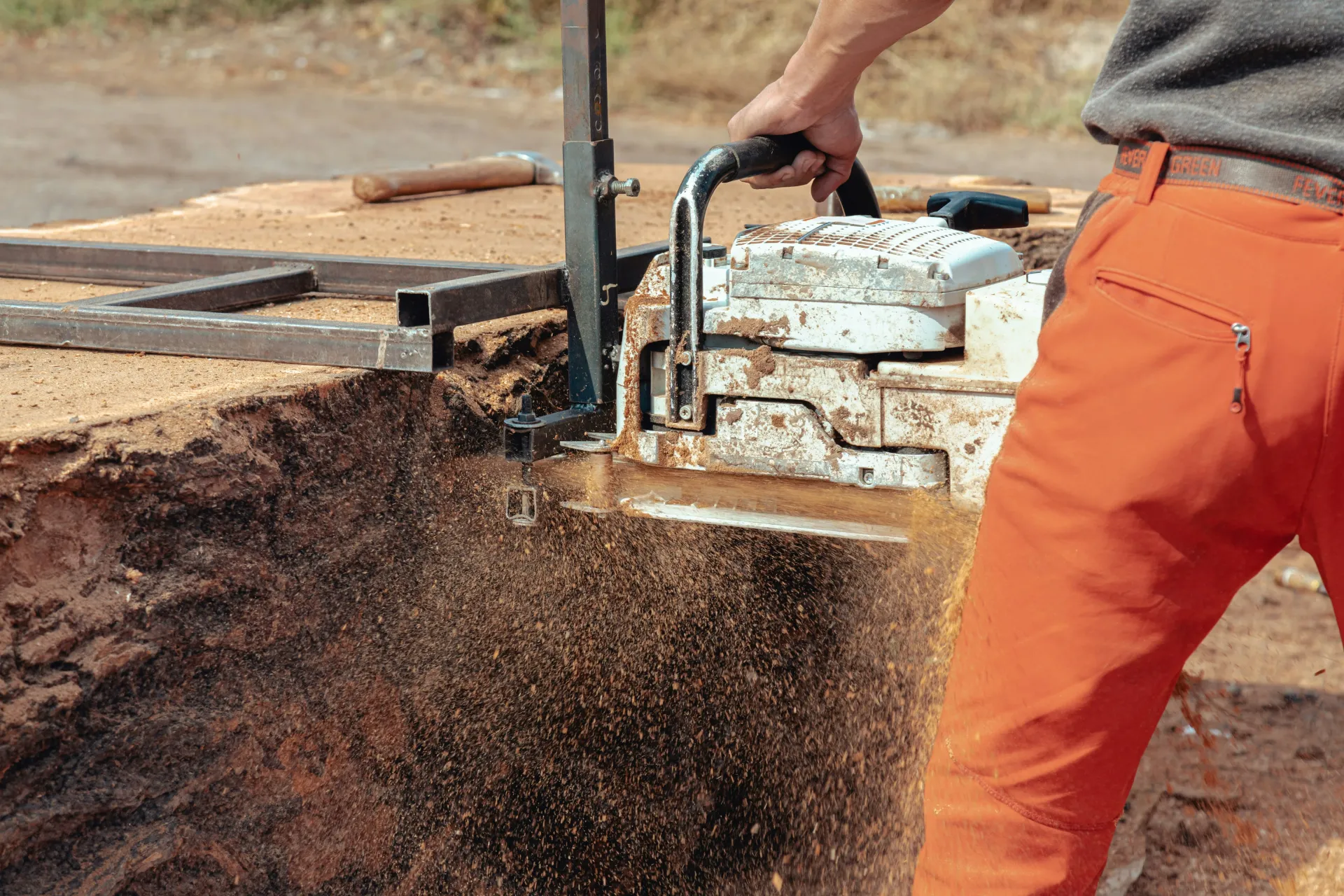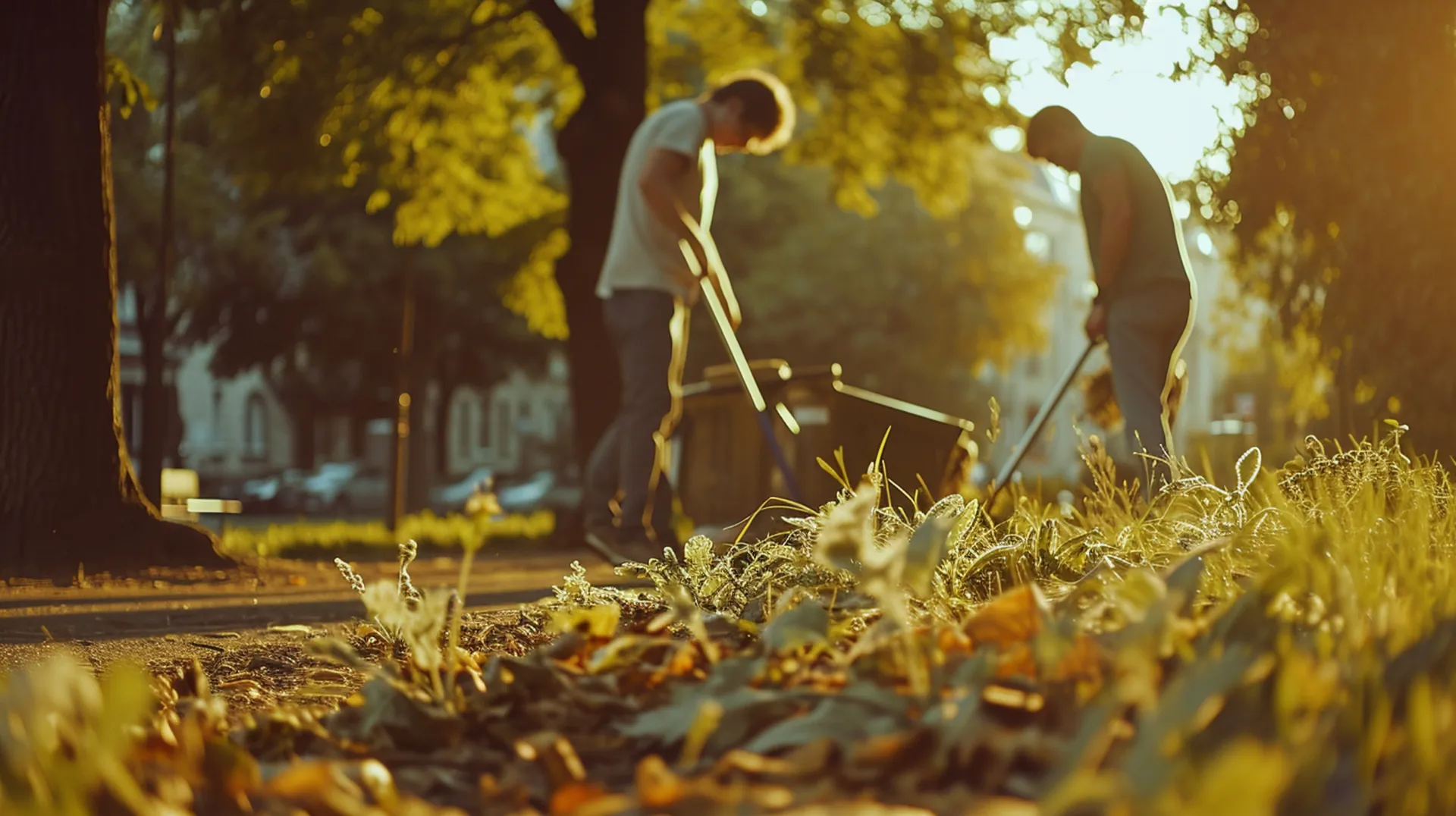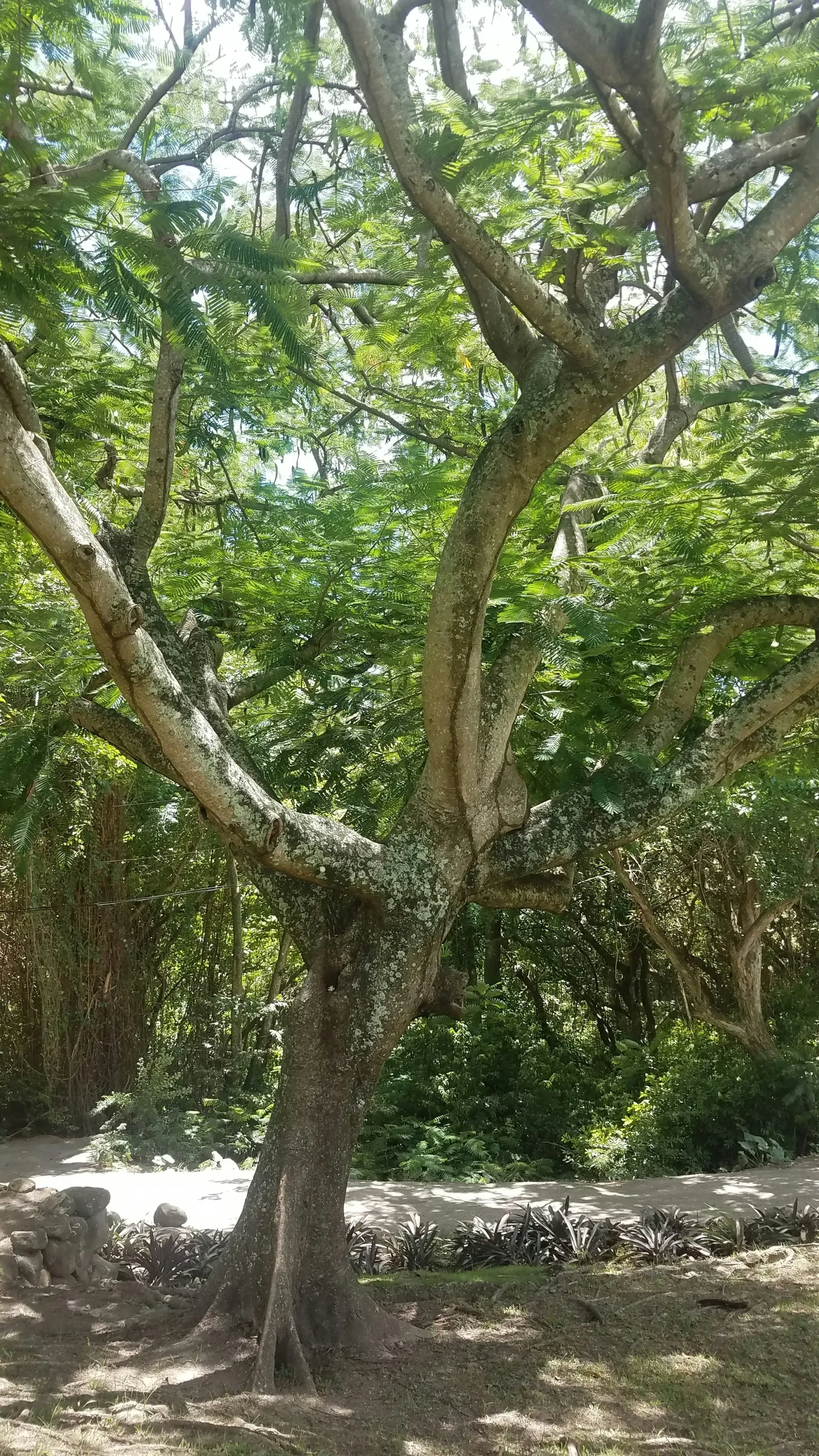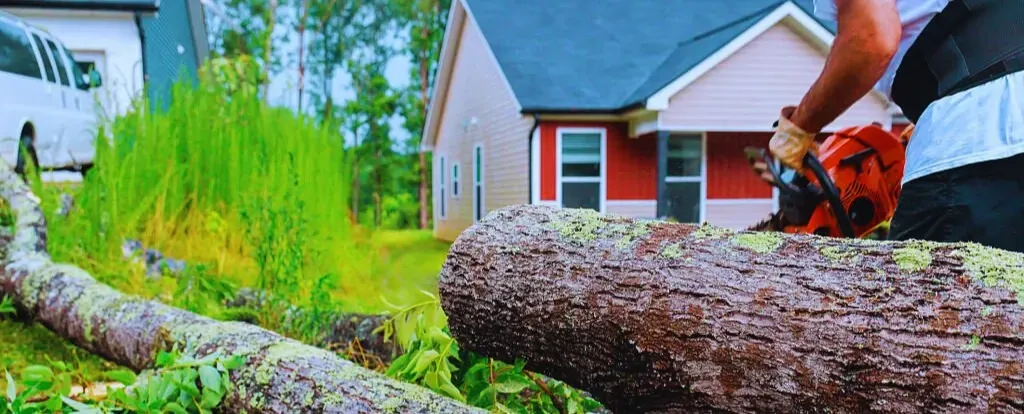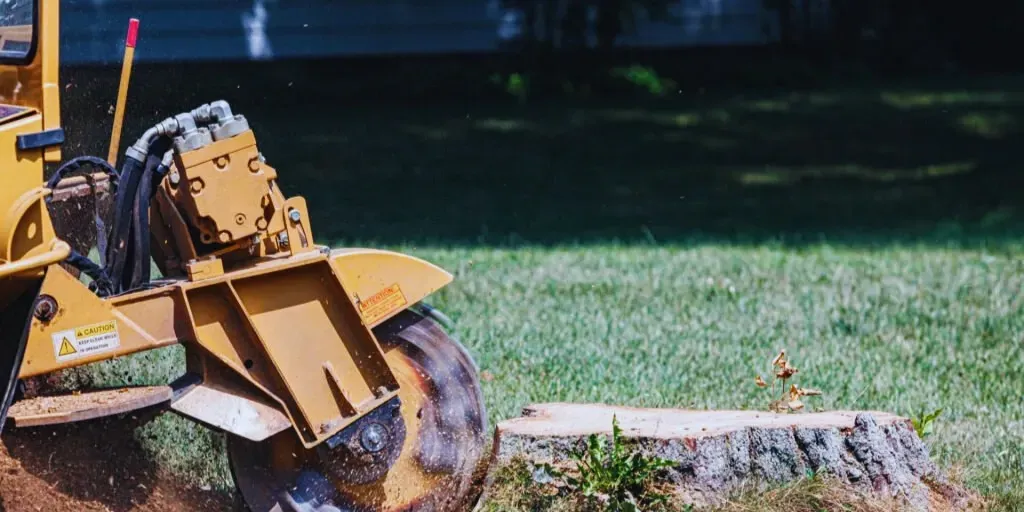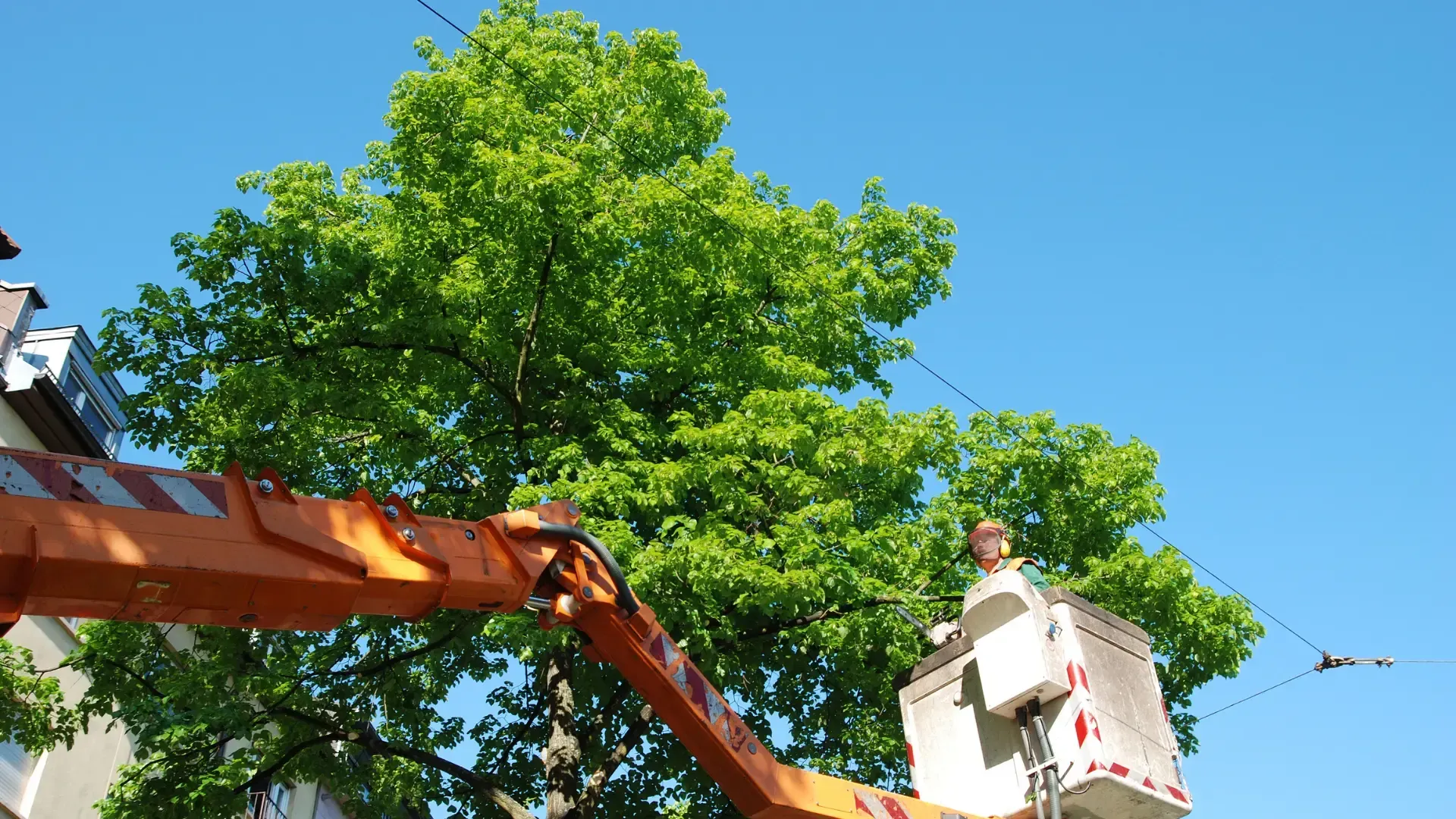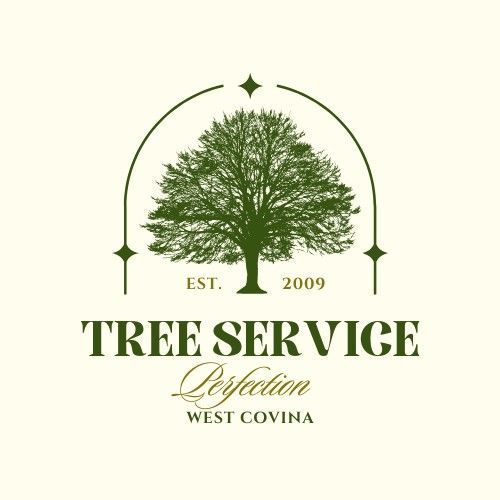What Safety Measures Do Experts Take During Tree Removal?
If you live anywhere with mature trees on your property, you already know how important professional expertise is during tree removal. Between heavy equipment operation, falling branches, structural hazards, and property proximity, tree removal involves significant risks that demand comprehensive safety protocols and professional training.
At Covina Tree Service, we help property owners understand safety protocols and expert procedures that protect everyone during tree work. Whether you need hazardous tree removal, emergency services, routine takedowns, or storm damage cleanup, professional arborists deliver systematic safety measures that ensure secure, efficient operations you can trust.
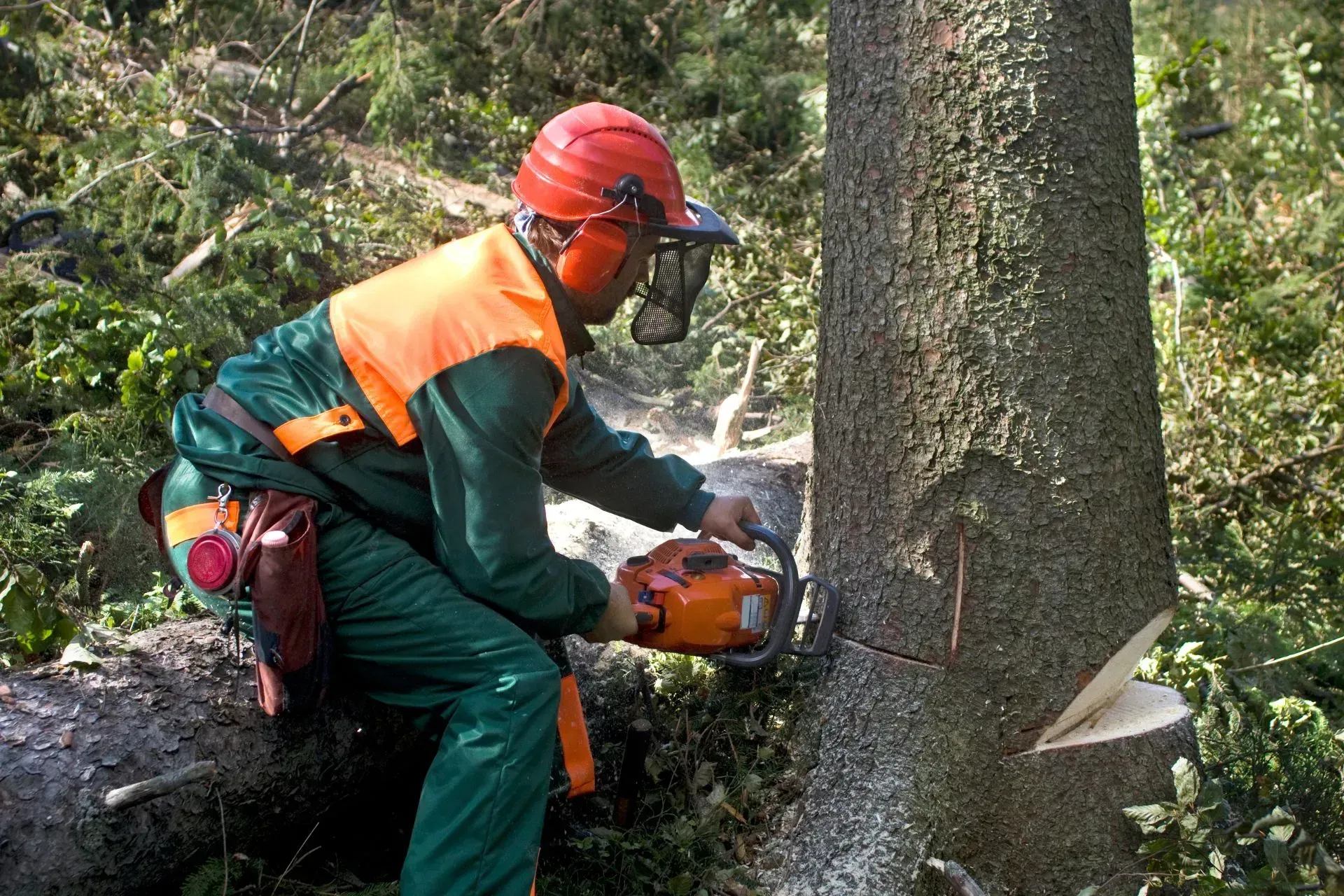
What Are Professional Tree Removal Safety Measures?
Professional tree removal safety measures are comprehensive protocols designed to protect workers, property, bystanders, and surrounding landscapes during tree work. These measures include proper equipment use, systematic planning, protective gear, risk assessment, and standardized procedures that minimize all hazard exposure.
Essential tree removal safety measures include:
- Comprehensive site assessment and hazard identification
- Personal protective equipment for all crew members
- Proper equipment inspection and maintenance
- Established work zones and safety perimeters
- Systematic cutting and rigging techniques
- Emergency response procedures and first aid readiness
For example, professional arborists removing a large oak tree near residential structures establish clear safety zones, wear complete protective equipment, use proper rigging systems, and follow systematic cutting sequences that prevent property damage and ensure worker safety throughout the operation.
Why Safety Measures Matter in Tree Removal
Tree removal presents inherent hazards that require professional safety protocols. With heavy falling materials, power tool operation, height work, unpredictable tree behavior, and environmental variables, proper safety measures become essential for successful operations.
Professional safety measures eliminate preventable accidents and catastrophic failures. They protect workers from injury, prevent property damage, ensure bystander safety, and maintain liability protection. This makes comprehensive safety protocols a critical requirement for professional tree removal operations.
According to the Occupational Safety and Health Administration, tree care operations consistently rank among the most hazardous outdoor work activities. In fact, professional safety measures reduce tree removal accidents by over 90 percent compared to untrained operators attempting tree work.
As one of our safety specialists often says:
"Safety measures in tree removal are not just about following rules. They're about protecting lives, preventing injuries, and ensuring every worker returns home safely after completing hazardous tree work."
Critical Safety Measures Experts Implement
Understanding specific safety protocols helps property owners recognize professional operations and evaluate contractor competence. Multiple comprehensive measures combine to create safe working environments.
Pre Work Site Assessment: Experts evaluate tree condition, lean direction, surrounding hazards, power line proximity, and environmental factors before beginning work.
Personal Protective Equipment: All crew members wear hard hats, safety glasses, hearing protection, cut resistant clothing, and steel toe boots throughout operations.
Equipment Safety Checks: Chainsaws, ropes, rigging equipment, and trucks undergo thorough inspection before each use to ensure proper function.
Safety Zone Establishment: Clear perimeters are marked preventing bystander access to danger zones during active tree removal.
Communication Protocols: Hand signals, radios, and clear verbal commands ensure all crew members coordinate safely during complex operations.
Proper Climbing Techniques: Certified arborists use appropriate harnesses, ropes, and climbing methods when working at height.
Controlled Cutting Sequences: Systematic limb removal and trunk sectioning prevent unpredictable falls and maintain control throughout removal.
Rigging Systems: Heavy branches are safely lowered using ropes, pulleys, and proper rigging techniques rather than allowing free falls.
Tree Removal Safety Protocol Priority:
| Safety Measure | Implementation Stage | Purpose | Risk Reduction |
|---|---|---|---|
| Site Assessment | Before work begins | Hazard identification | Very High |
| PPE Requirements | Throughout operation | Worker protection | Very High |
| Safety Zones | Before cutting starts | Bystander protection | High |
| Equipment Inspection | Daily before use | Equipment failure prevention | High |
| Communication Systems | During active work | Coordination and awareness | High |
| Rigging Techniques | During branch removal | Controlled descent | Very High |
How Experts Plan Safe Tree Removal Operations
Systematic planning ensures comprehensive safety throughout tree removal projects. Understanding planning processes helps property owners recognize professional competence and thorough preparation.
Initial Consultation: Experts visit properties to assess trees, identify hazards, and develop removal strategies before providing estimates.
Hazard Analysis: All potential dangers including power lines, structures, underground utilities, and environmental factors are identified and addressed.
Equipment Selection: Appropriate tools, trucks, and safety gear are selected based on specific tree characteristics and site conditions.
Crew Assignment: Qualified personnel with proper certifications and experience are assigned based on project complexity and safety requirements.
Emergency Planning: Contingency plans address potential accidents, equipment failures, or unexpected situations with predetermined responses.
Weather Monitoring: Operations are scheduled during appropriate weather conditions avoiding high winds, storms, or dangerous temperatures.
Permit Verification: Required permits and utility notifications are obtained before work begins ensuring legal compliance and safety coordination.
Professional Tree Removal Safety Execution
Working with professional tree removal services ensures systematic safety implementation throughout operations. Experienced crews follow established protocols that protect everyone involved.
Here's how professional safety measures work:
Pre Operation Meeting: Crews review plans, discuss hazards, assign roles, and confirm communication methods before starting work.
Site Preparation: Safety zones are established, equipment is positioned, and property protection measures are implemented.
Systematic Removal: Trees are dismantled using proven tree removal techniques starting from top down with controlled sectioning.
Continuous Monitoring: Crew leaders constantly assess changing conditions, worker safety, and environmental factors during operations.
Safe Material Handling: Cut sections are lowered safely using rigging or allowed to fall only in secured drop zones.
Equipment Operation: All power tools and machinery are operated by trained personnel following manufacturer safety guidelines.
Site Cleanup: Debris is removed safely, equipment is secured, and properties are restored after tree removal completes.
Once finished, properties are left safe and clean with all hazards eliminated and safety standards maintained throughout.
Property Owner's Safety Verification Checklist
Here's a quick checklist to help you verify contractors follow proper safety measures during tree removal.
Step 1: Verify contractors carry proper insurance including liability and workers compensation coverage.
Step 2: Observe that all crew members wear complete personal protective equipment during operations.
Step 3: Confirm safety zones are established keeping bystanders away from work areas.
Step 4: Check that equipment appears well maintained and operators demonstrate competence.
Step 5: Ensure contractors follow systematic procedures rather than rushing through removals.
Expert Tips and Safety Insights
In professional tree removal, comprehensive safety measures protect everyone involved while ensuring successful project completion. Understanding industry standards helps property owners select qualified contractors.
"Safety measures in tree removal represent the difference between professional operations and dangerous amateur work. Qualified arborists invest in training, equipment, and protocols that protect workers and properties throughout every project," says one of our certified arborists.
Whether your property has hazardous trees near structures, storm damaged specimens requiring emergency tree removal, or routine tree trimming needs, professional safety measures ensure work completes without injuries, accidents, or property damage.
Common Safety Equipment Used by Experts
Understanding specialized safety equipment helps property owners recognize professional operations and appropriate tool use during tree removal projects.
Personal Protective Equipment: Hard hats, safety glasses, face shields, hearing protection, cut resistant pants and jackets, gloves, and steel toe boots.
Climbing Safety Gear: Professional harnesses, climbing ropes, carabiners, positioning lanyards, and shock absorbing systems for height work.
Cutting Equipment: Professional grade chainsaws with safety features, pole saws, hand saws, and properly maintained cutting tools.
Rigging Equipment: Heavy duty ropes, pulleys, friction devices, slings, and rigging hardware rated for tree work loads.
Communication Devices: Two way radios, hand signals, and whistle systems ensuring crew coordination during operations.
First Aid Supplies: Comprehensive medical kits, emergency supplies, and trained personnel ready to respond to injuries.
Property Protection: Plywood sheets, tarps, and padding protecting lawns, driveways, and structures from equipment and debris.
Certifications and Training Behind Safety Measures
Professional tree removal safety relies on comprehensive training and industry certifications. Understanding credential requirements helps property owners verify contractor qualifications.
ISA Certified Arborist: International Society of Arboriculture certification demonstrates knowledge of proper tree care and safety protocols.
Tree Care Industry Association: TCIA accreditation indicates companies meet industry safety and operational standards.
OSHA Training: Occupational Safety and Health Administration training ensures crews understand workplace safety requirements.
First Aid Certification: CPR and first aid training prepares crews to respond effectively to medical emergencies.
Equipment Operation Licenses: Proper licensing for aerial lifts, cranes, and heavy equipment operation when required.
Continuing Education: Regular training updates keep professionals current with evolving safety standards and techniques.
Conclusion
Understanding what safety measures experts take during tree removal helps property owners make informed contractor selections and recognize professional operations. By implementing comprehensive site assessment, personal protective equipment, safety zones, proper equipment, systematic procedures, and emergency preparedness, professional arborists ensure safe tree removal that protects everyone involved.
If you need professional tree removal with comprehensive safety measures, contact us today to schedule your consultation with certified arborists committed to safe, efficient operations. Let's help you remove trees safely and professionally.
Key Takeaways
- Professional tree removal requires comprehensive safety protocols protecting workers and property.
- Personal protective equipment, safety zones, and proper equipment are essential safety measures.
- Systematic planning and hazard assessment prevent accidents before work begins.
- Certified arborists follow industry standards ensuring safe, professional operations.
- Property owners should verify contractor safety practices before hiring tree removal services.
Frequently Asked Questions
What safety equipment should tree removal crews wear? Professional crews wear hard hats, safety glasses, hearing protection, cut resistant clothing, gloves, and steel toe boots. Climbers also use harnesses and specialized climbing safety equipment.
How do experts prevent property damage during tree removal? Experts use rigging systems to lower branches safely, establish protection zones around structures, use plywood or padding on vulnerable surfaces, and follow controlled cutting sequences preventing unpredictable falls.
Are tree removal companies required to have insurance? Yes. Professional companies carry liability insurance protecting property owners and workers compensation coverage protecting employees. Always verify insurance before hiring contractors.
What certifications should professional arborists have? Look for ISA Certified Arborist credentials, TCIA company accreditation, OSHA safety training, and proper equipment operation licenses demonstrating professional qualifications.
How do experts handle trees near power lines? Experts coordinate with utility companies, maintain safe distances from energized lines, use non conductive tools when appropriate, and may request temporary power disconnection for hazardous situations.
What should I do if tree removal contractors do not follow safety measures? Stop work immediately and address concerns with company management. If contractors refuse to implement proper safety measures, terminate the contract and hire qualified professionals.
